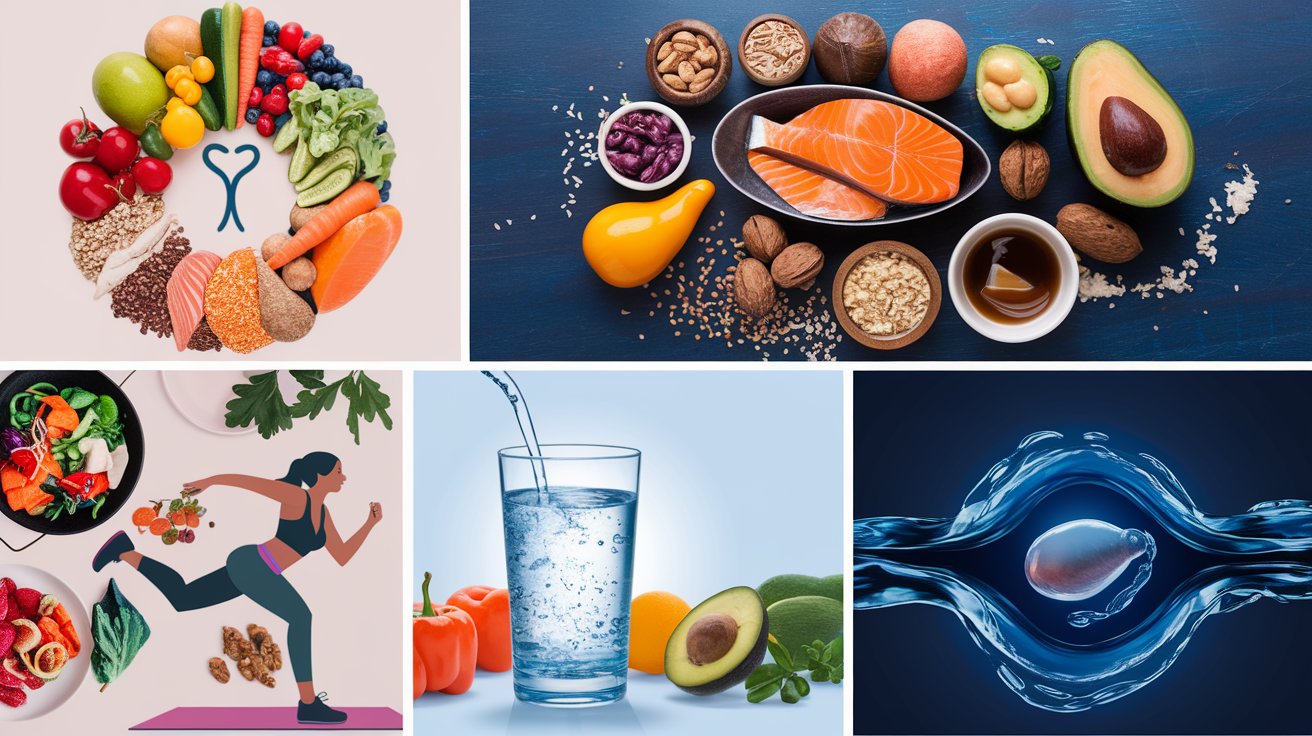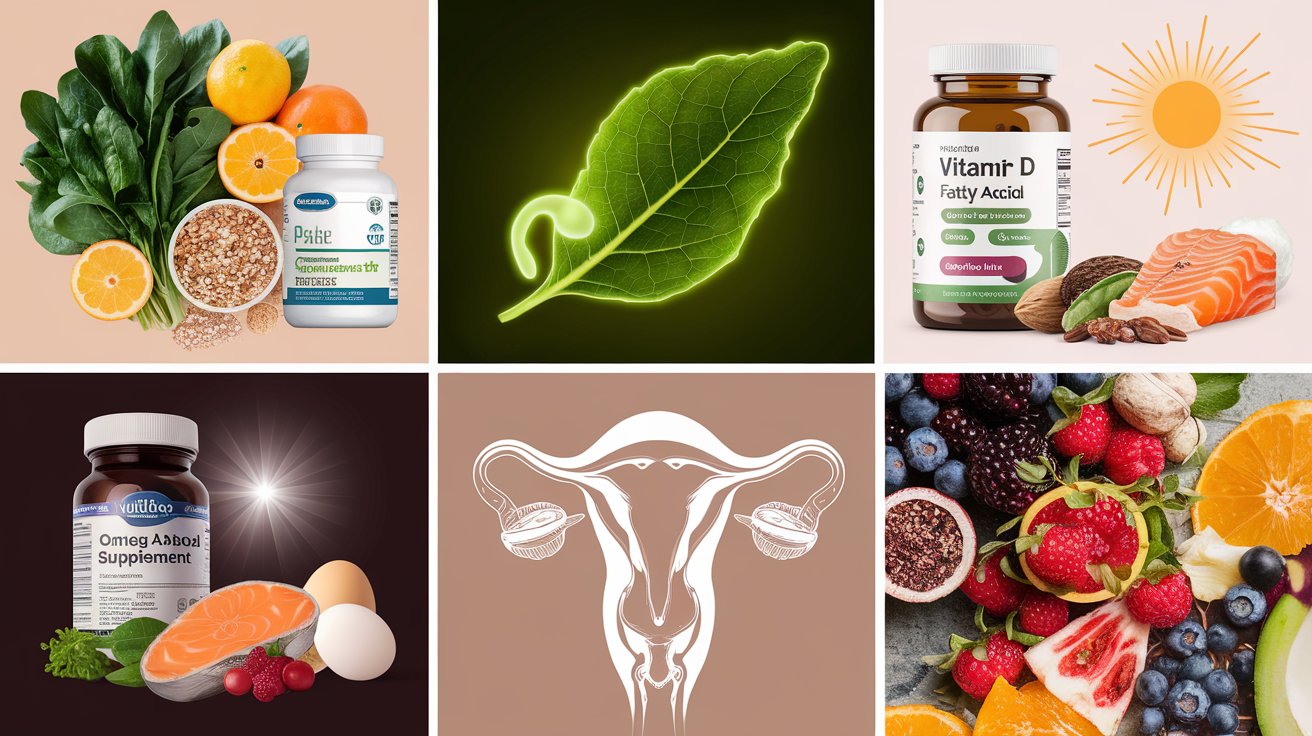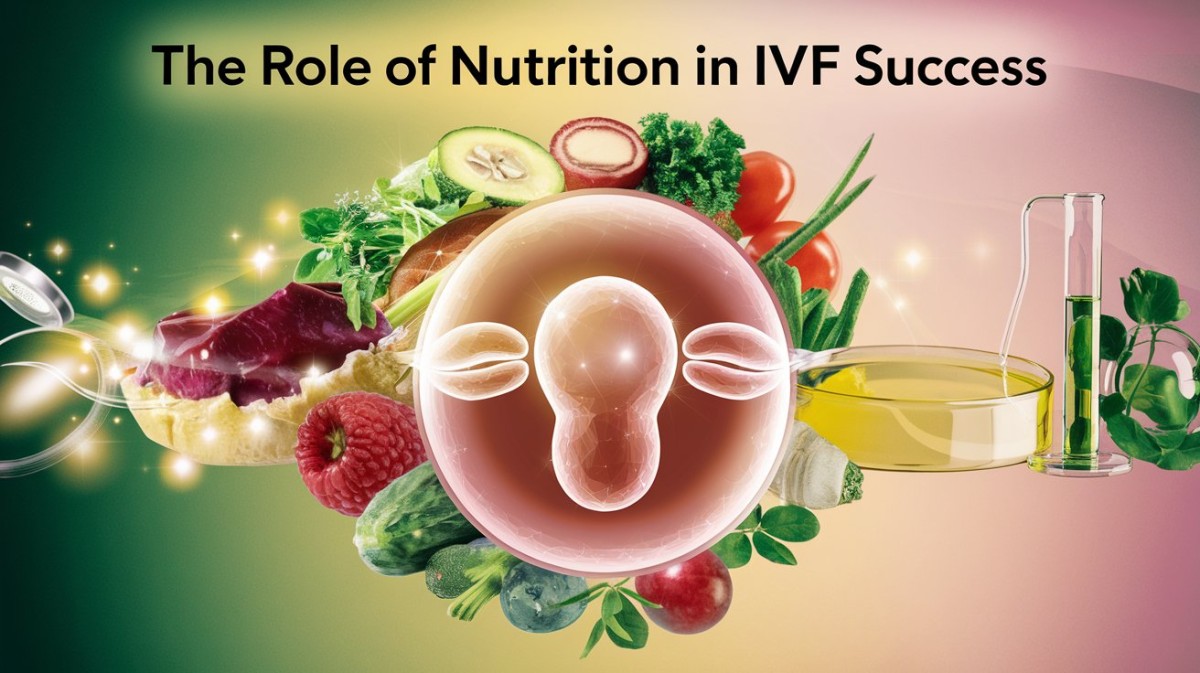In vitro Fertilisation (IVF) is a multifaceted and emotionally laden process for most couples seeking fertility treatments. New techniques in medicine and embryology have greatly enhanced the IVF process and success in fertility treatments. However, nutrition has a key part to play in improving fertility and overall success rates in fertility treatments. The principles of healthy nutrition are helpful for making the eggs and sperm better, controlling the hormone levels, and preparing the endometrium for the implantation.
The following blog post will discuss the suggested dietary guidelines for the individuals undergoing IVF procedure and the role of supplements in improving fertility.
Dietary Recommendations for IVF Patients

1. Focus on Nutrient-Dense Foods
A nutrient-rich diet is essential for individuals undergoing IVF. Incorporating a variety of fruits, vegetables, whole grains, lean proteins, and healthy fats can provide the necessary vitamins and minerals to support reproductive health. Here are some key food groups to emphasize:
> Fruits and Vegetables: These are packed with antioxidants that help combat oxidative stress, which can negatively affect egg and sperm quality. Leafy greens like spinach and kale, as well as colorful fruits such as berries and citrus, are excellent choices.
> Whole Grains: Foods like quinoa, brown rice, and whole wheat bread provide complex carbohydrates that stabilize blood sugar levels and support overall hormonal balance.
> Lean Proteins: Sources such as chicken, turkey, fish, eggs, legumes, and tofu are essential for tissue repair and hormone production.
> Healthy Fats: Incorporating sources of omega-3 fatty acids—found in fatty fish (like salmon), walnuts, flaxseeds, and avocados—can improve blood flow to the reproductive organs and enhance egg quality.
2. Maintain a Healthy Weight
Fertility is influenced mainly and predominantly by body weight. Usually conditions such as underweight and overweight inhibit hormonal regulation of the female body and ovulation. Hence it would be advisable for people aspiring to go for IVF to ensure that they have a healthy weight that results from proper diet and physical exercises. It is especially recommended to consult with a registered dietitian to receive a necessary nutrition plan.
3. Hydration Matters
Liquids should be taken in ample measure during IVF due to the increased stress levels of the body. Drinking the right amount of water keeps the body healthy, helps digestion and allows it to function properly. It is recommended to make sure to drink adequate amounts of water all through the day; and try as much as possible to add as many forms of water to your diet as possible like cucumber, oranges, water melon etc.
4. Foods to Avoid
Certain foods can hinder fertility and should be limited or avoided during the IVF process:
- Processed Foods: High in trans fats and low in nutritional value, processed foods can negatively impact hormone levels.
- Caffeine: Excessive caffeine intake has been linked to decreased fertility; it’s advisable to limit coffee consumption to one cup per day or switch to decaffeinated options.
- Alcohol: Alcohol can disrupt hormonal balance and should be avoided during the IVF process.
The Role of Supplements in IVF

In addition to a balanced diet, certain vitamins and supplements can further support reproductive health during IVF.
1. Folic Acid
Folic acid is crucial for fetal development and helps prevent neural tube defects. Women planning to conceive should start taking prenatal vitamins containing at least 400 mcg of folic acid at least three months before starting IVF treatment. Foods rich in folate include leafy greens, beans, lentils, citrus fruits, and fortified cereals.
2. Omega-3 Fatty Acids
Omega-3 fatty acids play an essential role in reducing inflammation and improving egg quality. They also support uterine health by enhancing blood flow. Aim for two to three servings of fatty fish per week or consider omega-3 supplements if fish intake is low.
3. Vitamin D
Vitamin D deficiency has been linked to lower IVF success rates. This vitamin plays a role in hormone regulation and may influence ovarian function. Sun exposure is a natural source of vitamin D; however, supplementation may be necessary for those with limited sun exposure or low dietary intake.
4. Antioxidants
Antioxidants such as vitamins C and E help protect egg cells from oxidative damage. Foods rich in antioxidants include berries, nuts, seeds, dark chocolate, and colorful vegetables. Supplements may also be beneficial but should be taken under medical guidance.
5. Zinc
Zinc is vital for DNA synthesis and hormone production in both men and women. It supports healthy sperm production and may improve egg quality as well. Good sources of zinc include oysters, pumpkin seeds, lentils, chickpeas, nuts, dairy products, and whole grains.
Practical Tips for Optimizing Nutrition During IVF

1. Eat a Variety of Foods: Ensure your diet includes diverse food groups to cover all essential nutrients.
2. Plan Meals Ahead: Preparing meals in advance can help you stick to your dietary goals during the busy IVF process.
3. Consult with Experts: Working with a registered dietitian specializing in fertility nutrition can provide personalized guidance tailored to your specific needs.
4. Listen to Your Body: Pay attention to how different foods make you feel; choose those that energize you while avoiding those that cause discomfort or bloating.
Conclusion
Diet also helps to greatly increase the IVF success rate through the improvement of egg and sperm quality and health in general. A healthy diet plan where the recommended minerals and vitamins are taken and the rest supplemented are requirements for conception. From the onset of your IVF process, focusing on a healthy diet improves not only your physical but also your psychological health despite the rigorous process involved.
By focusing on nutrient-dense foods while avoiding harmful substances like processed foods and excessive caffeine or alcohol, individuals undergoing IVF can significantly improve their chances of success. Remember that every small change counts; adopting healthier eating habits today could lead to a brighter tomorrow filled with hope for parenthood.
